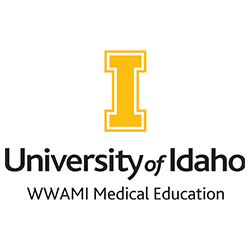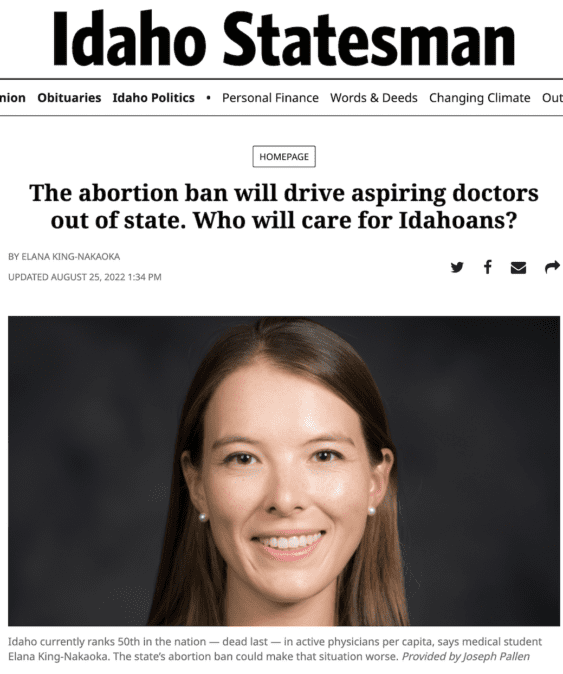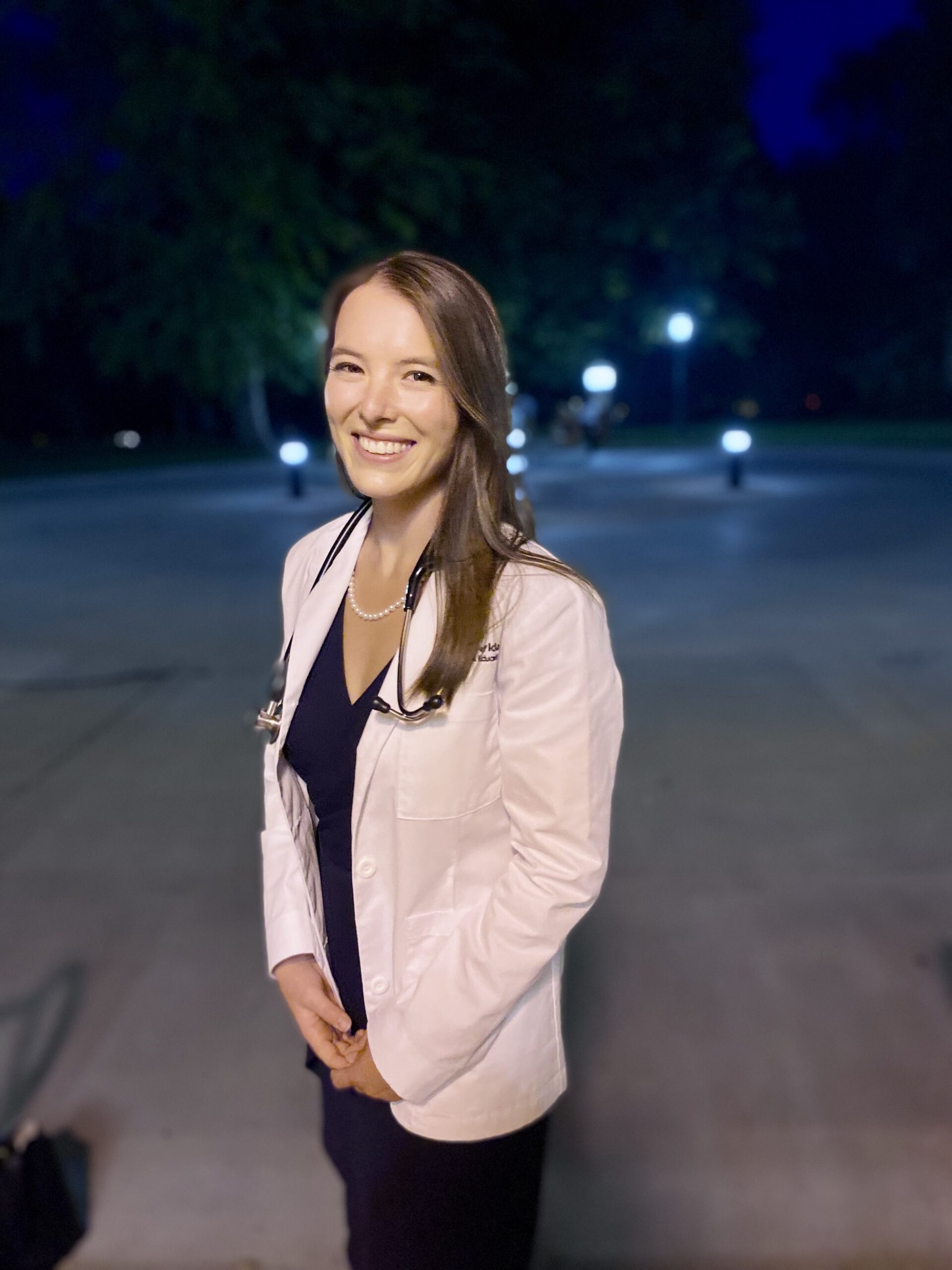Elana King-Nakaoka knew she was going to work with refugee and immigrants as she learned a lot about those populations through her parents’ work in immigration law.
“I was exposed at a young age to all of the amazing things that refugees and immigrants live through and contribute to in Idaho and everywhere,” she said. “I thought I wanted to do some sort of global advocacy work, like work for the United Nations on refugee issues.”
A summer volunteer opportunity was what pushed the Hailey, Idaho, native toward a medical career serving the same populations.
King-Nakaoka spent the summer of 2017 advocating for asylum seekers detained in Dilley, Texas. The center detained mostly mothers and children from Central America.
“I realized I wanted to have more of a direct-care role,” she said.
Majoring in biology of global health at Georgetown University as an undergraduate and being fluent in Spanish helped connect the dots that led her to medical school. She is in her second year at the WWAMI Medical Education Program at the University of Idaho.

“I had a bent toward science and advocacy and realized I could do these two things that I love by becoming a physician. Doing so would allow me advocate for my individual patients in a tangible way,” she said. “I’ll also be able to use my platform as a physician to advocate for health reform policies that are more welcoming for refugees and immigrants.”
King-Nakaoka received a scholarship from the Blue Cross of Idaho Foundation for Health. The scholarships are awarded to medical students from Idaho enrolled in the Idaho WWAMI program, which is a partnership between the University of Washington School of Medicine and the states of Washington, Wyoming, Alaska, Montana and Idaho.
The Idaho WWAMI program allows 40 students each year to attend their first two years of medical school at the University of Idaho. During the clinical phase of their education, students can complete almost all required clerkships across sites in Idaho or anywhere within the WWAMI region.
“Something that is so fantastic about the WWAMI program is that it provides clinical experience early on,” she said. “I’m able to work with practicing physicians and see how knowledge is being applied. It motivates me to go home and study because I realize that I will soon use this information to directly help my patients.”
Noelle Miller, a certified nurse midwife from Denver, worked with King-Nakaoka at a Planned Parenthood facility a few years ago. She has no doubt that King-Nakaoka will be a fantastic doctor.
“She’s so compassionate and really wants to help everyone,” Miller said. “She has big goals of reaching different types of people who need care the most and are the most vulnerable. She has compassion for individuals, but she also sees the bigger picture of systemic inequalities.”

Two of those areas are women’s health and reproductive health. King-Nakaoka wrote an op/ed piece (subscription required) that was published by The Idaho Statesman in response to Idaho’s new laws that affect pregnant patients. That didn’t surprise Miller.
“She is so dedicated and passionate about health equity and helping people really achieve their best health and removing the barriers to get the healthcare they need,” Miller said.
King-Nakaoka will be spending six months doing a clinical rotation in Nampa next summer. She’s excited to apply her Spanish language skills at Terry Reilly Health Clinics in the Treasure Valley. She learned to speak Spanish in public schools in Hailey where she was enrolled in a dual-language immersion program.
Eventually she will make a decision about what type of medical specialty to pursue.
“I want to be accessible to people,” she said. “When you’re a primary care provider, people don’t need referrals to see you. Referrals are barriers. We’ll see what I love after my clinical rotations.”
